SERVICES
The typical permit process consists of a four-step process; Application, Plan Review, Permit Issuance and Inspections. New construction and major remodeling require an additional step at the end; Certificate of Occupancy.
Permit revisions allow for a plan that was approved by the city to be changed or modified before the permit has called for final inspection. When you make changes to the approved work during construction, you must first get approval. The reviewer may approve changes for work that does not reduce the structure’s strength or cause fire and life safety issues. A building permit revision allows you to submit plan changes to an issued construction, demolition, mechanical, or site work permit.
Permits that have not received the final building inspection approvals and are now expired. A permit remains valid as long as work begins within 180 days from the date issued and continues in a substantial manner until completion of the job. A permit will expire if work does not start within 180 days or if work starts and then stops or is abandoned for 90 days. When getting a permit issued you are given a date that needs to show the last inspection being finalized by expiration date.
When building permits are issued, they include a built-in expiration date, governed by the Building Code. Permit renewals are issued on expired permits.
Unfinished permits that are nearing the expiration date may be granted an extension so the project can be completed and finaled. A permit extension can be requested for an unexpired permit – a permit that has not met its expiration date listed on the permit or a permit that has had ongoing work and demonstrates that the permit is being pursued.
When a licensed contractor is doing the work, the contractor must register. This allows the The City or Municipality verify that the contractor has the appropriate state and local licenses before the permit is issued. The following are the requirements for registration.
STATE LICENSED :• Copy of State License; • Certificate of liability insurance (City of __________ as certificate holder); • Certificate of Workman’s Compensation (City of _________ as certificate holder) or Workman’s Compensation exemption card and Driver’s License; • Local Business Tax from where your business is located in Florida; • Copy of qualifier’s Driver’s License; and • Telephone, Fax and E-mail address required. COUNTY LICENSED :• Certificate of Competency; • State of Florida license registration; • Certificate of liability insurance (City of ______________ as certificate holder); • Certificate of Workman’s Compensation (City of _______________ as certificate holder) or Workman’s Compensation exemption card and Driver’s License; • Local Business Tax from Miami-Dade County; • Municipal Contractor’s tax Receipt from Miami-Dade County; • Copy of qualifier’s Driver’s License; and • Telephone, Fax and E-mail address required.
The license is for a restuarant or establishment that wishes to sell both beer and wine for on premises consumption. Package sales are allowed in sealed containers if permitted by local ordinances and Florida Beverage Law in section 561.20(2)(a).
The 4COP SRX liquor license is also a full-liquor license but the key difference is that this liquor license must stay qualify with the current space or facility. It cannot be transferred to another space. To qualify however, restaurant facilities need to hold and be permitted for at least 150 seats, sometimes more depending on the area. These businesses also need to show, when asked by governing agencies, that they are selling more food than alcohol (51%/49%). The 4COP SRX is sometimes informally referred to a “liquor license with food.“
An Event license can cover up to three days and allows a not-for-profit organization to host an event where alcohol is sold or served.
A tree permit is required prior to the removal, relocation, root pruning or trimming more than 25% of any tree. These permits intend to preserve, protect, and enhance our city. The purpose is to assure that the design and construction of all development activity is executed in a manner consistent with the preservation of trees to the greatest extent possible.
Legalizing un-permitting construction. In other words, work done without a permit and currently facing legal disputes (violations, Stop work order, or red tag) regarding their property, or construction project.
If you want to gain early occupancy on a project that is still under minor construction but now includes a habitable space, you can apply for a TCO. TCO is issued for new construction or change of use (i.e. from a school to a restaurant). A Temporary Certificate of Occupancy (TCO) signals that a building is safe to occupy but that the sponsor must resolve outstanding issues before receiving a final CO. A TCO typically lasts anywhere from 90-360 days, by which time a building must get another TCO or a final CO. In large buildings it is common for TCOs to be issued every 90 days for several years.
A certificate of occupancy is a document issued by a local government agency or building department certifying a building’s compliance with applicable building codes and other laws, and indicating it to be in a condition suitable for occupancy.
If you want to gain early occupancy on a project that is still under minor construction but now includes a habitable space, you can apply for a TCC. TCC is needed for remodels, renovations and for shell buildings. A TCC grants residents/building owners the same rights as a CO/CC, however, is only valid for a temporary period of time.
The City or Municipality issues a CC to certify that a building (or renovation project) has been completed in compliance with applicable code(s). A Certificate of Occupancy (CO) is issued for new construction or change of use (i.e. from a school to a restaurant), while a Certificate of Completion (CC) is needed for remodels, renovations and shell buildings.
A Certificate of Use, often referred to as a CU, is a Zoning certificate that confirms the space the business occupies complies with three items: 1) local Zoning ordinances, 2) the Florida Fire Prevention Code, and 3) the Florida Building Code.
Inspections reassure that the work is meeting the safety requirements established in the Florida building codes. You are required to always have the approved plans during your inspections. The building department is going to verify that the approved plans coincide with the physical work that is being performed. It also ensures there’s no work being done that’s not in the scope of work.
Special events are events that are held in the City for a period of typically less than two (2) weeks. A Special Event Permit is required for organizations and individuals who wish to hold any organized activity involving the use of, or having an impact upon public property, public facilities, parks, sidewalks or streets within the city limits.
The person in charge of overseeing project development, inspections, and permit processes involved. These can be provided by an Expeditor and most of the time look like this:

Direct representative of the owner of the establishment. This service is usually used by clients that are overseas or don’t have time to invest in permitting construction procedures.
M.E.D. Expeditors is licensed to record different state and county documents with the state. Anything that needs to be public records can be recorded.
Code Enforcement is responsible for providing enforcement of County Codes relevant to land development, building construction and policies. Any type of construction or alteration done without a permit or outside the building code will most likely get a violation. Prior to issuing a citation, a code enforcement officer shall provide notice to the person that the person has committed a violation of a code or ordinance and shall establish a reasonable time period within which the person must correct the violation.
Interested parties, such as title companies, contractors and individuals, may request a search for records of open violations, open permits, and/or expired permits that are outstanding against a property or contractor.
DBPR is usually needed during the permitting process. To legally run a shop, operate a business, or provide certain services to citizens in a state, individuals need to apply for and be granted licenses. The Department of Business and Professional Regulation (DBPR) is the agency in charge of licensing and regulating more than businesses and professionals such as alcohol, beverage & tobacco, barbers/cosmetologists, condominiums, spas, hotels and restaurants, pari-mutuel wagering facilities, real estate agents and appraisers, and veterinarians, among many other industries.
Water and Sewer Department provide high-quality drinking water and wastewater services. As well as promote water conservation and work to safeguard public health and the environment. The building department will determine if you need an approval, depending on the scope of work of your project.
Miami-Dade County Environmental Resources Management implements monitoring, education, restoration, regulatory and land management programs to protect water quality, drinking water supply, air quality and natural resources that are vital to the health and well-being of all Miami-Dade County residents, visitors and the ecosystem. DERM is used for any kind of waste substance that is detrimental to public health. The building department will determine if you need an approval or review, depending on the scope of work of your project.
Florida department of transportation. The building department will determine if you need an approval and/or review, depending if the scope of work interferes with FDOT. FDOT’s continuing mission is to provide a safe transportation system that ensures the mobility of people and goods, enhances economic prosperity, and preserves the quality of our environment and communities.
The Notice of Commencement must be completed and recorded within 90 days before starting the work and a copy must be posted on the job site.
For your protection under the Construction Lien Law and to avoid the possibility of paying twice for improvements to real property, you must record a NOC with the M.E.D. Expeditors or the Clerk of Court’s Office before your inspections. If the value of work on your application exceeds $2,500.
The City re-certifies structures 40 years or older to ensure they are safe for use and occupancy, as per County and Building Code. To get a 40/50 year re-certification, you need to hire an architect or engineer to inspect your property. NEW GUIDELINES AND REQUIREMENTS FOR 40/50 YEAR RECERTIFICATION HAVE BEEN PUT IN PLACE FOR 2022.
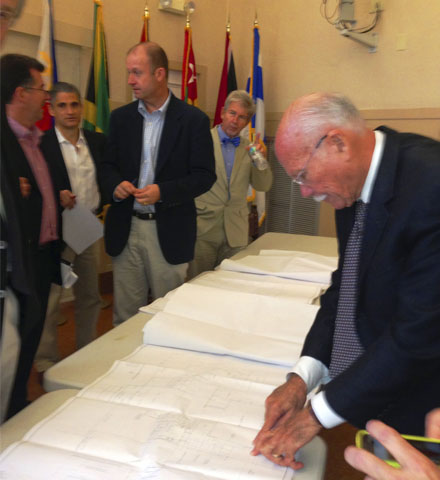 Formal approval of building plans by the designated government agency as meeting the requirements of prescribed codes. It is an authorization to proceed with the construction or reconfiguration of a specific structure at a particular site, in accordance with the approved drawings and specifications.
Formal approval of building plans by the designated government agency as meeting the requirements of prescribed codes. It is an authorization to proceed with the construction or reconfiguration of a specific structure at a particular site, in accordance with the approved drawings and specifications.
M.E.D. Expeditors will obtain all permits for local sites. We investigate all the requirements, terms, rates and approvals necessary for you to understand what must be done, and then coordinate with your architect or construction manager of a plan to obtain permits in the shortest time possible. We will be in constant communication with you and the city government for all roles to fill, and payments to the corresponding jurisdiction, negotiate with the city or county in your name and start the plans processing.
After making all the necessary corrections, submit plans and were ready for the final construction approval by the city government.
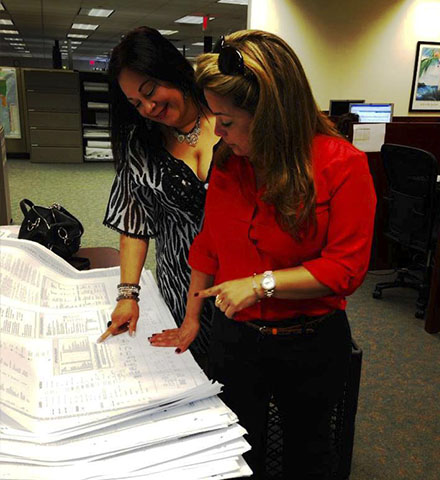 Our staff is trained for administrative and / or techniques to work directly with clients, explaining the permit application process, the review of the plans, and provide overall guidance to ensure that the authorization process is completed in accordance with policies and procedures.
Our staff is trained for administrative and / or techniques to work directly with clients, explaining the permit application process, the review of the plans, and provide overall guidance to ensure that the authorization process is completed in accordance with policies and procedures.
Our employees are required to have considerable knowledge of the construction, in order to help customers determine the permissions that are required for work, construction costs and construction per square feet.
Our teams are able to make decisions based on their initiative and independent judgment.
M.E.D. Expeditors, provides information to customers and homeowners on procedures for obtaining permits. We supply to customers and homeowners documents related to obtaining permits. Reviews permit applications, compliance with regulations, construction costs, in addition, provide information to the public about the steps necessary to complete the permitting process until project completion.
M.E.D. Expeditors, is in constant online connection to check and see how they progress in the city permits local government.
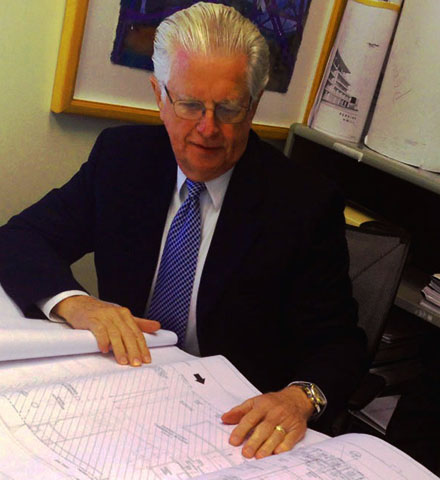 Residential construction is the process of adding structure to real property. The vast majority of the construction works are small renovations, such as adding a room, or renovation of a bathroom.
Residential construction is the process of adding structure to real property. The vast majority of the construction works are small renovations, such as adding a room, or renovation of a bathroom.
The commercial building is purchased privately or publicly utilizing various delivery methodologies, including cost estimates, the offer lasts, negotiated price, traditional, management contracts, construction management at risk design and construction design.
Residential construction practices and / or commercial, technology and resources must comply with local building codes authority and practice. Materials readily available in the general area, dictate the materials of construction used. The construction cost per square foot basis gives homes and / or offices can vary dramatically depending on site conditions, local regulations, economies of scale, the availability of qualified tradesmen.
MED Expeditors, has extensive knowledge of the level of residential and commercial construction, which ensures that the permits are approved by the respective city in the estimated time.
In this photo John Fullerton, President of THE FULLERTON GROUP ARCHITECTS, reviewing business plans approved by the city.
 Miami boasts the seventh highest metropolitan population in the country.
Miami boasts the seventh highest metropolitan population in the country.
The U.S. city of Miami, Florida is the site of 307 high-rises, 59 of which stand taller than 400 feet. The tallest building in the city is the 64-story Four Seasons Hotel & Tower, which rises 789 feet in Miami’s Brickell district and was completed in 2003.
It also stands as the tallest building in the state of Florida and the 51st-tallest building in the United States. The second-tallest skyscraper in the city is the Southeast Financial Center, which rises 764 feet .
Nine of the ten tallest buildings in Florida are located in Miami.
MED Expeditors, knows the requirements to obtain permits for the construction of high rises, the interior remodeling and / or additions in general.
 The Permit Records Section will direct you to pay an up-front permit fee at the cashier. Most Permitting, Environment and Regulatory Affairs reviews will be completed in several days. Residential permits & commercial permits take approximately 2 weeks
The Permit Records Section will direct you to pay an up-front permit fee at the cashier. Most Permitting, Environment and Regulatory Affairs reviews will be completed in several days. Residential permits & commercial permits take approximately 2 weeks
MED Expeditors, receives copies of all building permits for your own records and to obtain quickly and accurately any residential or commercial property in Miami-Dade County.
We also obtain results via online to meet customer needs.
We offer a full account of the history of the construction of the property as soon as possible.
Our team is in the field every day, completing research requests quickly and efficiently. Our project assistants can also read and understand building permits so you can get the most accurate and fast investigation.
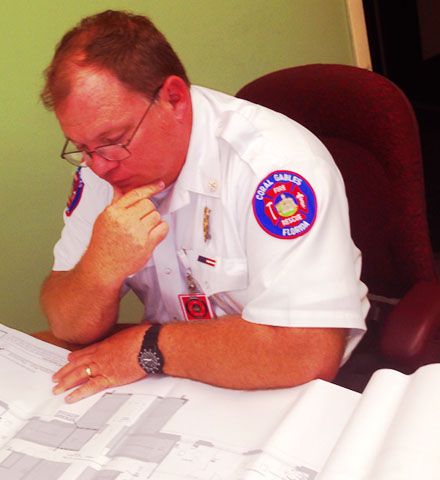 Whenever a person gets a building permit for (A) new construction or (B) improvement to an existing building, he/she will be required to obtain a Certificate of Occupancy from the Building Department upon completion of any construction work.
Whenever a person gets a building permit for (A) new construction or (B) improvement to an existing building, he/she will be required to obtain a Certificate of Occupancy from the Building Department upon completion of any construction work.
MED Expeditors, prepares and verifies all documentation required for the issuance of TCO, CO, TCC and CC Certificates, we prepared reports, coordinates committee meetings and other related tasks as required.
We also obtain results via online to meet customer needs.
We also coordinate plans processing functions between building department.
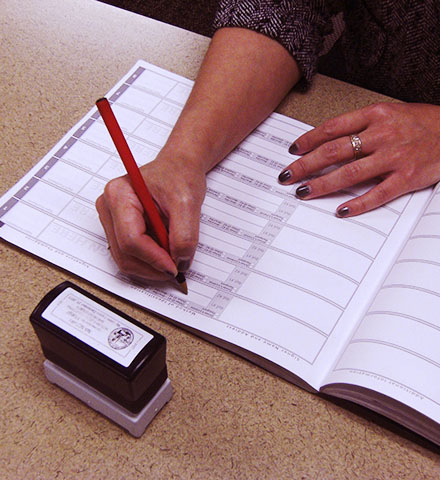 In the U.S. state of Florida, a notary public is a public officer appointed by the governor of the state to take acknowledgments, administer oaths, attest to photocopies of certain documents, solemnize marriage, protest the non-acceptance or non-payment of negotiable instruments, and perform other duties specified by law.
In the U.S. state of Florida, a notary public is a public officer appointed by the governor of the state to take acknowledgments, administer oaths, attest to photocopies of certain documents, solemnize marriage, protest the non-acceptance or non-payment of negotiable instruments, and perform other duties specified by law.
A notary may only perform a notaries act upon receipt of satisfactory proof of identity (i.e. a driver’s license or other form of identification card), or by the notary’s own personal knowledge of the person appearing before them, or upon the sworn statement of two witnesses who personally know the person whose signature is to be authenticated.
Maria Elena Delgado, President of M.E.D. Expeditors, and Notary Public Florida State, can authenticate documents and perform other acts that vary from jurisdiction to jurisdiction.
This will allow much faster processing any permits required to process the plans.
 If you are a building a restaurant/hotel or just need licensing… Here in MED Expeditors we verify, obtain new, update and renew your licenses in the division of hotels and restaurants. Our staff has great knowledge and experience with licensing in the Florida Department of business & professional regulation.
If you are a building a restaurant/hotel or just need licensing… Here in MED Expeditors we verify, obtain new, update and renew your licenses in the division of hotels and restaurants. Our staff has great knowledge and experience with licensing in the Florida Department of business & professional regulation.
– Liquor license
– Beer and wine permit/license
– Sitting capacity approval
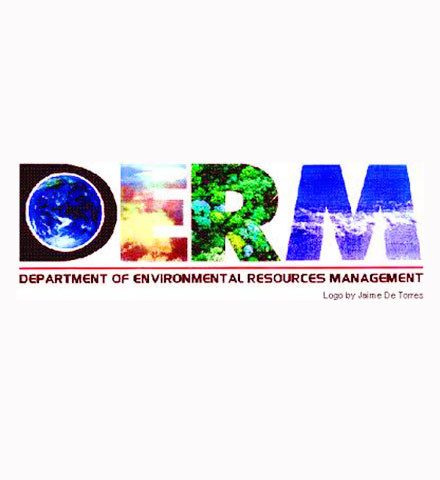 Miami-Dade County Department of Environmental Resources Management (DERM) manages, restores and protects Miami-Dade’s environment, focusing on such issues as air, drinking water and surface water quality monitoring, manatee protection, beach renourishment and habitat restoration. DERM provides on-the-scene emergency response coordination for hazardous material and other incidents, regulates water and sewer utility companies, monitors industrial and commercial sources of air and water pollution, preserves tree resources and environmentally sensitive lands, and enforces local, state and federal environmental standards.
Miami-Dade County Department of Environmental Resources Management (DERM) manages, restores and protects Miami-Dade’s environment, focusing on such issues as air, drinking water and surface water quality monitoring, manatee protection, beach renourishment and habitat restoration. DERM provides on-the-scene emergency response coordination for hazardous material and other incidents, regulates water and sewer utility companies, monitors industrial and commercial sources of air and water pollution, preserves tree resources and environmentally sensitive lands, and enforces local, state and federal environmental standards.
If a permit from DERM is necessary for you to obtain any of the above referenced certificates and licenses, DERM require different permit applications based upon what the permit is needed for.
MED Expeditors, making the decision whether you need a special permit. There may be cases where a permit is required and that is not here. There may also be occasions where multiple activities require permits. We recommend that you contact us to determine if other permits may be required in your situation.
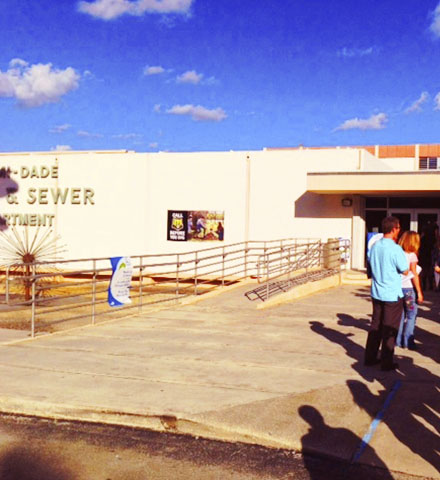 The Water and Sewer Department’s (WASD) New Customer Division offers an electronic review service (eReview) for development projects. This allows registered customers to submit plans for review and approval in electronic file formats. Reviews, markups and changes can be exchanged electronically, thus improving efficiency
The Water and Sewer Department’s (WASD) New Customer Division offers an electronic review service (eReview) for development projects. This allows registered customers to submit plans for review and approval in electronic file formats. Reviews, markups and changes can be exchanged electronically, thus improving efficiency
The Miami-Dade Water and Sewer Department is responsible for the operation and maintenance of wastewater collection and water distribution systems in most of Miami-Dade County.
Title companies, attorneys or residents requesting Premise Location Certification for properties served by the Water and Sewer Department can order one by contacting the Department.
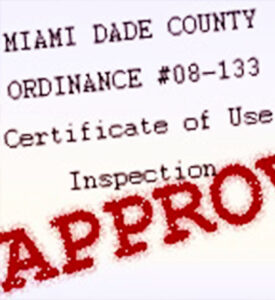 It is an approval of a specific use at a specific location
It is an approval of a specific use at a specific location
Prior to the issuance of a Certificate of Use, the applicant must obtain DERM’s approval. In order for DERM to approve a Certificate of Use, the applicant must:
Comply with DERM’s Land Use Regulations (i.e. Wellfield Protection Areas, Uses Served by Septic Tanks, etc),
Obtain the appropriate Sewer Capacity Certification (aka Sewer Allocation)
Obtain any required DERM Operating Permits (i.e. Industrial Waste, Air Source, Storage Tank, Grease Discharge, etc.).
 You must make an appointment to view or obtain copies of Building Plans on file in the Microfilm and Plans Library. The following are guidelines and procedures that should be followed to ensure optimal service for all our clients.
You must make an appointment to view or obtain copies of Building Plans on file in the Microfilm and Plans Library. The following are guidelines and procedures that should be followed to ensure optimal service for all our clients.
Some microfilm records have been converted to digital format and can be viewed and/or printed using this web site without having to visit the Department of Permitting, Environment and Regulatory Affairs.
Documents that have been converted to digital format will have the word “Images” under “Document Format.” If the desired document has been digitized, you can just proceed to pay and view/print.
If you need a certified copy you must make an appointment. Certified copies are typically used for: reissuing a permit, canceling a permit, or replacing a lost set of plans to be placed at a job site.
